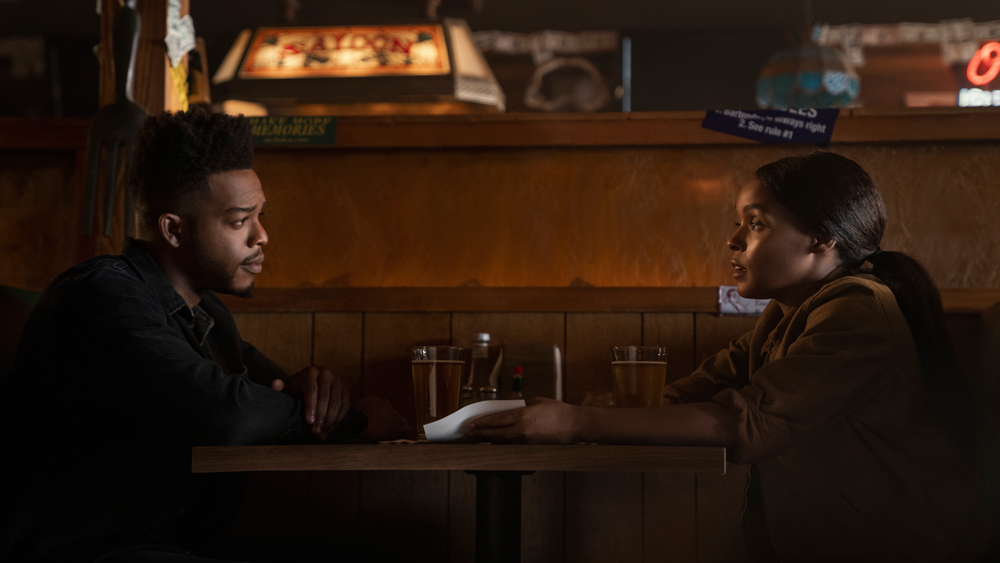‘Homecoming’ Season 2: TV Review
By Daniel D’Addario
LOS ANGELES (Variety.com) – It’s been a particular frustration of this era of TV to watch shows that demanded no amplification — self-contained limited series that ended elegantly — contort themselves into new and unnatural shapes to keep the applause going. The key example of this so far has been “Big Little Lies,” a show that made a crystalline one-season-long case for the power of collaboration and friendship, then fractured its central group in season 2 simply for conflict’s sake.
But the second outing of “Big Little Lies,” at least, retained key talent in front of and behind the camera, ensuring some familiar pleasures remained. Not so with Amazon’s “Homecoming,” whose superlative first season was fueled both by the chemistry between Julia Roberts and Stephan James and by Sam Esmail’s direction, with its self-conscious debts to Hitchcock. (The something-more-than-homage was forgivable in part because of the sheer panache with which Esmail carried it off.) With Roberts and Esmail gone and James appearing in a more limited capacity, the show doesn’t come up with a credible way forward, instead stumbling through familiar story beats with less gusto. It resembles, perhaps, one of its own characters after undergoing the amnesia-inducing treatment at the show’s center — certain of where it is but unclear on why, familiar in appearance but emptied out of spark.
This is not the fault of Janelle Monáe, who plays lead this time; following Roberts at the peak of her powers is a hard ask, made more complicated by the fact that the scenario is so similar. Monáe, like Roberts, plays a person whose eroded memory conceals an involvement at the goings-on of the cryptic Geist corporation. To say more would, perhaps, give away twists and turns, but those plot movements are of more purely academic interest than emotional involvement. The genius of the Roberts performance came in the way she supplied familiar warm gestures to cover over all she didn’t know. Monáe, whose character wakes up in a rowboat with no idea how she got there, is all action by contrast, and is given little time to let moments breathe. (She is at her best playing against Hong Chau, a performer who’s a happy carryover from season 1 and whose natural, unaffected charm makes up for the fact that the enigma of her character, a chief selling-point last time around, has been whittled away.) Matching a somewhat emptied-out narrative — one that adds busyness, in the form of big performances by Chris Cooper and Joan Cusack, among others — the direction, by Kyle Patrick Alvarez, feels more cautious, less striking. Smaller.
Fundamentally, for all that new details about the intrigue at Geist get larded on, there’s not that much in the way of true story here — the first season, for all that it embroidered strangeness on its margins, was elemental. It was, in the end, a somewhat briefly told tale about two people working together to overcome the tragic fact that they were stuck in a system they couldn’t overcome. There was a charge there that dwarfed the show’s visual excesses; all the directorial vim existed in service to its story. , something that feels sorely lacking on a show whose mythology is expanding but whose characters feel, in the end, forgettable.

